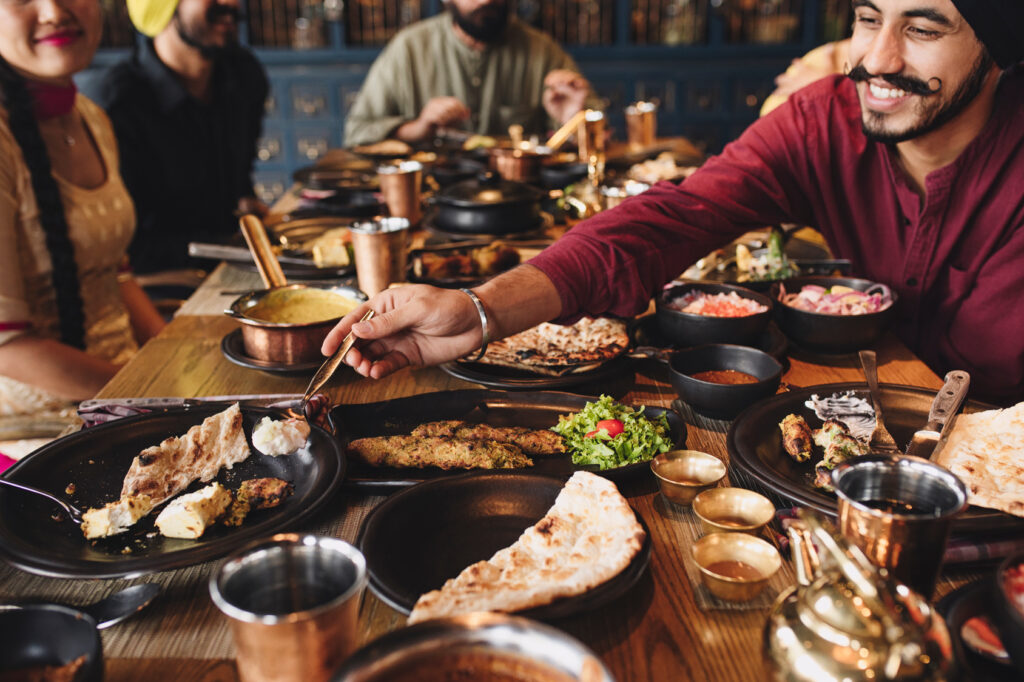Many ethnic foods and traditions can have positive effects on mental health, as they often incorporate a variety of nutrient-rich ingredients, communal dining experiences, and cultural practices that promote well-being. Here are some examples:
- Mediterranean Diet: The Mediterranean diet, commonly followed in countries like Greece, Italy, and Spain, emphasizes whole foods such as fruits, vegetables, legumes, whole grains, nuts, fish, white meats and olive oil. It contains some of the best anti-inflammatory foods to eat and this diet has been associated with a reduced risk of depression and cognitive decline.
- Japanese Cuisine: Or Washoku, is a social practice based on a set of skills, knowledge, practice, and traditions related to the production, processing, preparation and consumption of food. The practice favors the consumption of various natural, locally sourced ingredients such as rice, fish, vegetables, and edible wild plants. The basic knowledge and skills related to Washoku, such as the proper seasoning of home cooking, are passed down in the home at shared mealtimes. Japanese food, such as sushi, miso soup, and green tea, often includes ingredients rich in omega-3 fatty acids and antioxidants. These components have been linked to improved brain health and a reduced risk of depression.
- Indian Ayurvedic Practices: Ayurveda, an ancient Indian system of medicine, emphasizes a holistic approach to health. Ayurvedic practices such as meditation, yoga, and incorporating spices like turmeric, ginger, and cumin in meals can promote mental well-being.
- Mexican Tradition of Sharing Meals: In Mexican culture, communal dining is an important tradition that fosters social connections and emotional support. Sharing meals with family and friends can have a positive impact on mental health by reducing feelings of isolation and promoting a sense of belonging.
- African Cuisine: African cuisine often incorporates a variety of colorful vegetables, whole grains, and lean proteins. These nutrient-dense foods provide essential vitamins and minerals that support brain health and overall well-being.
- Chinese Tea Culture: The Chinese tradition of tea drinking, such as green tea and herbal teas, has been associated with relaxation and stress reduction. The act of brewing and sipping tea can be a mindful practice that promotes mental calmness.
- Indigenous Food Traditions: Many indigenous cultures have traditional food practices that focus on locally sourced ingredients and a deep connection to the land. They have worked to cut out processed and refined foods and alcohol and their diet now includes pumpkin seeds, walnuts, dried cherries, sunflower seeds, squash, zucchini, and corn—with elk, bison, fish, turkey, and deer meat as primary sources of protein. These traditions often promote a sense of cultural identity, connection to nature, and overall well-being.
Sharing, growing, and cooking food creates a connection, below are some ideas from SAMHSA. Here is a link to the full article.
- Whether honoring agriculture, foraging, food processing, hunting, or fishing, make it a community event.
- Getting food locally is empowering because it encourages people to get outside and understand the origin of their food.
- Controlling some of the local food source is a step toward food sovereignty.
- Know how to keep seeds, control soil health, maintain water health, and foster opportunities for people to engage with their environment.
- Digging your hands into the soil, foraging, getting outside, is therapeutic and helps heal trauma.
- Being in nature, around trees, healthy soil, and our plant relatives and spending time with our community is a way for us to heal.
- Birch water is a way to calm stress because it is packed with calcium, potassium, and magnesium which are good for relaxing muscles.
- Fiddlehead ferns are packed with protein and vitamin C and K, improving mood and mental focus.
It is important to note that while these foods and traditions can support mental health, they are not a substitute for professional help. If you or someone you know is struggling with mental health concerns, it’s crucial to seek appropriate medical or psychological support.




